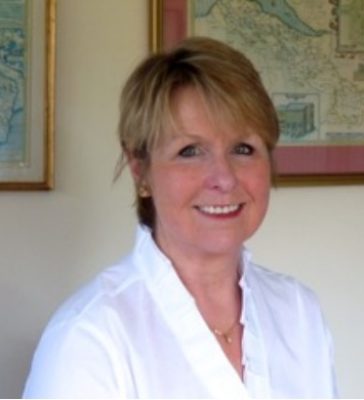
Elizabeth Margaret Howe
Current Employer/Organisation Name
International Legal Assistance Consortium
What have you been doing since leaving Exeter, and what are you doing now?
I was admitted as a Solicitor in 1980 and have been a public prosecutor since then, working mainly in London, becoming Chief Crown Prosecutor for Kent, England in 1999. I was Chair of the Kent Local Criminal Justice Board from 2003 to 2005 and was a member of the Crown Prosecution Service (CPS) Executive Board and the Office of the Criminal Justice Reform Board. I qualified as a Higher Court Advocate. In 2007 I joined The International Association of Prosecutors [The IAP] as their General Counsel on secondment from the Crown Prosecution Service for England and Wales and was responsible for their professional work programme. One of the principal responsibilities of the IAP was towards raising standards for prosecutors worldwide-in particular standards relating to integrity, fairness, transparency, impartiality, independence (without compromising accountability). Examples of my contribution include extensive work with other countries and in conjunction with International organisations concerned with Rule of Law such as United Nations, World Bank, Organisation for Security and Cooperation in Europe (OSCE), Office for Democratic Institutions and Human Rights (ODIHR),Council of Europe. I have become professionally involved with many international justice organisations such as the American Bar Association (ABA), the International Bar Association (IBA) The Commonwealth Secretariat, the Siracusa International Institute for Criminal Justice and Human Rights (Siracusa Institute), the International Society for the Reform of Criminal Law (ISRCL). I retired from the CPS and the IAP in September 2015 and became an honorary member of the IAP and a member of the IAP Senate. From April 2015 to September 2021I was President of ILAC (The International Legal Assistance Consortium). ILAC is an NGO based in Stockholm, Sweden. It is an umbrella organisation comprising over 50 organisational members composed principally of law institutions and human rights groups. Its purpose is to coordinate justice development and capacity building programmes in fragile and post conflict jurisdictions. I now work with ILAC as a Consultant. In January 2008 I was made an officer of the Order of the British Empire (OBE) in recognition of service to the Crown Prosecution Service of England and Wales. In 2011 I received an award from the International Society for the Reform of Criminal Law for advancing their aims. In July 2015 I was conferred with an Honorary Doctor of Laws from the University of Kent at Canterbury, England and has been a lecturer at the University. I hold the following positions; Trustee for a Hospice for the terminally ill Member of a School Academy Trust (formerly a Governor) Member of the governing body of the Kent Law Society (President of The Kent Law Society from 2006 to 2007). Honorary Bencher of The Honourable Society of the Inner Temple Ambassador for the County of Kent.
Why did you choose this career? And what do you enjoy most about your work?
has been fascinating-I have travelled extensively and met and worked with prosecutors, lawyers and judges from all over the world and all continents. Recently with ILAC I have been involved in justice development work in Libya, Tunis, Liberia, Cuba and Palestine which has been eye-opening.
Please tell us if you were a member of any societies, groups or sports clubs?
Bracton Law Society, Rifle Range..
What did you enjoy most about your programme and what was the biggest highlight?
European Law Trip.
What did you enjoy most about studying here?
Camaraderie – lifelong friends.
Why did you choose to study at Exeter?
Good reputation for law and European and international law.
What skills and experiences have been most useful for your career?
Good interpersonal and communication skills
Aptitude for hard work
Tireless preparation and application.
What advice would you give to a current student who wishes to pursue your career?
Provides you with good grounding for most aspects of professional life
Transferable skills and confidence to deal with the most challenging aspects of human life
Without prospects of great reward or applause.
What are your plans for the future?
I am in my future-semi retirement graduating in time to full retirement but with I expect continuing opportunities to use experience, knowledge and know-how for pro bono activities nationally and internationally. I will continue to support ILAC.

